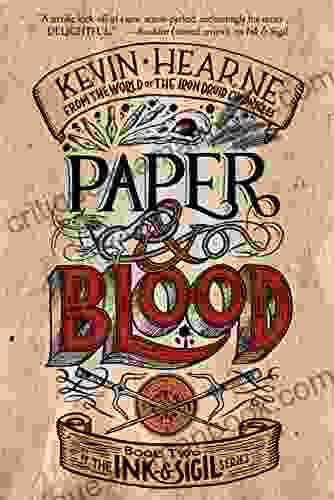The Neuroscience Secrets Of Feeling Good Based On Your Brain Type

Feeling good is a complex and multifaceted experience that can be influenced by a variety of factors, including our genetics, our environment, and our brain chemistry. While there is no one-size-fits-all approach to feeling good, there are some general principles that can help us all to boost our mood and improve our overall well-being.
4.7 out of 5
| Language | : | English |
| File size | : | 26010 KB |
| Text-to-Speech | : | Enabled |
| Enhanced typesetting | : | Enabled |
| X-Ray | : | Enabled |
| Word Wise | : | Enabled |
| Print length | : | 341 pages |
| Lending | : | Enabled |
| Screen Reader | : | Supported |
The Four Brain Types
According to Dr. Daniel Siegel, a clinical professor of psychiatry at the UCLA School of Medicine, there are four main brain types that are associated with different personality traits and behaviors. These four brain types are:
- Analytical: People with analytical brains are often logical, detail-oriented, and good at problem-solving. They tend to be introverted and prefer to work independently.
- Driver: People with driver brains are often ambitious, goal-oriented, and competitive. They are extroverted and enjoy being in charge.
- Amiable: People with amiable brains are often kind, compassionate, and supportive. They are extroverted and enjoy being around others.
- Expressive: People with expressive brains are often creative, imaginative, and passionate. They are introverted and enjoy spending time alone.
The Neuroscience Of Feeling Good
The neuroscience of feeling good is complex and involves a number of different brain regions and neurotransmitters. However, there are some general principles that can help us to understand how our brains work to make us feel good.
One of the most important neurotransmitters for feeling good is dopamine. Dopamine is associated with pleasure, reward, and motivation. When we do something that we enjoy, our brains release dopamine, which makes us feel good and motivates us to do it again.
Another important neurotransmitter for feeling good is serotonin. Serotonin is associated with mood, sleep, and appetite. When we have low levels of serotonin, we may feel depressed, anxious, and irritable. When we have high levels of serotonin, we feel more relaxed, happy, and content.
Endorphins are another important neurotransmitter for feeling good. Endorphins are released when we exercise, which is why exercise can help to improve our mood. Endorphins also have pain-relieving effects.
How To Feel Good Based On Your Brain Type
Now that we know a little bit about the neuroscience of feeling good, let's take a look at how we can use this information to boost our mood and improve our overall well-being.
If you have an analytical brain, you may find it helpful to focus on activities that challenge your intellect. This could include reading, writing, solving puzzles, or learning a new skill. You may also find it helpful to spend time in nature, as this can help to reduce stress and improve your mood.
If you have a driver brain, you may find it helpful to set goals for yourself and work towards achieving them. You may also find it helpful to take on leadership roles and to be in charge of situations. You may also find it helpful to get regular exercise, as this can help to release endorphins and improve your mood.
If you have an amiable brain, you may find it helpful to spend time with friends and family. You may also find it helpful to volunteer your time to help others.
If you have an expressive brain, you may find it helpful to express yourself creatively. This could include writing, painting, dancing, or singing. You may also find it helpful to spend time alone, as this can help you to recharge your batteries
Feeling good is a complex and multifaceted experience, but it is one that we can all achieve. By understanding the neuroscience of feeling good and by using this information to tailor our activities to our own brain types, we can all boost our mood and improve our overall well-being.
4.7 out of 5
| Language | : | English |
| File size | : | 26010 KB |
| Text-to-Speech | : | Enabled |
| Enhanced typesetting | : | Enabled |
| X-Ray | : | Enabled |
| Word Wise | : | Enabled |
| Print length | : | 341 pages |
| Lending | : | Enabled |
| Screen Reader | : | Supported |
Do you want to contribute by writing guest posts on this blog?
Please contact us and send us a resume of previous articles that you have written.
 Top Book
Top Book Novel
Novel Fiction
Fiction Nonfiction
Nonfiction Literature
Literature Paperback
Paperback Hardcover
Hardcover E-book
E-book Audiobook
Audiobook Bestseller
Bestseller Classic
Classic Mystery
Mystery Thriller
Thriller Romance
Romance Fantasy
Fantasy Science Fiction
Science Fiction Biography
Biography Memoir
Memoir Autobiography
Autobiography Poetry
Poetry Drama
Drama Historical Fiction
Historical Fiction Self-help
Self-help Young Adult
Young Adult Childrens Books
Childrens Books Graphic Novel
Graphic Novel Anthology
Anthology Series
Series Encyclopedia
Encyclopedia Reference
Reference Guidebook
Guidebook Textbook
Textbook Workbook
Workbook Journal
Journal Diary
Diary Manuscript
Manuscript Folio
Folio Pulp Fiction
Pulp Fiction Short Stories
Short Stories Fairy Tales
Fairy Tales Fables
Fables Mythology
Mythology Philosophy
Philosophy Religion
Religion Spirituality
Spirituality Essays
Essays Critique
Critique Commentary
Commentary Glossary
Glossary Bibliography
Bibliography Index
Index Table of Contents
Table of Contents Preface
Preface Introduction
Introduction Foreword
Foreword Afterword
Afterword Appendices
Appendices Annotations
Annotations Footnotes
Footnotes Epilogue
Epilogue Prologue
Prologue Adam Nicholls
Adam Nicholls Sean James Cameron
Sean James Cameron Sean Platt
Sean Platt Rayven T Hill
Rayven T Hill Courtney Lynn Rose
Courtney Lynn Rose David Osborne
David Osborne Pete Harris
Pete Harris Amy Harmon
Amy Harmon R M Ballantyne
R M Ballantyne David Pilling
David Pilling Anita Vermeer
Anita Vermeer Adam Kelly Morton
Adam Kelly Morton Joanie Chevalier
Joanie Chevalier Andrew W Lo
Andrew W Lo Eugenie Lewis
Eugenie Lewis Adam Higginbotham
Adam Higginbotham Raghav Khatter
Raghav Khatter Jonathan Coe
Jonathan Coe Marcus Alexander Hart
Marcus Alexander Hart Luci Shaw
Luci Shaw
Light bulbAdvertise smarter! Our strategic ad space ensures maximum exposure. Reserve your spot today!
 Dan BellFollow ·17.5k
Dan BellFollow ·17.5k Steve CarterFollow ·19.4k
Steve CarterFollow ·19.4k Dylan MitchellFollow ·16k
Dylan MitchellFollow ·16k Elias MitchellFollow ·15.7k
Elias MitchellFollow ·15.7k Clinton ReedFollow ·13.7k
Clinton ReedFollow ·13.7k Corbin PowellFollow ·9.1k
Corbin PowellFollow ·9.1k Robert FrostFollow ·13.1k
Robert FrostFollow ·13.1k Shannon SimmonsFollow ·2.5k
Shannon SimmonsFollow ·2.5k

 Dan Henderson
Dan HendersonPaper Blood: Two of the Ink Sigil
By D.S. Otis In...

 Joseph Conrad
Joseph ConradStarting Up: Critical Lessons from 10 New Schools
Starting a new school...

 William Powell
William PowellThe Peculiar World of Funny Science Fiction Comedy: Where...
Prepare yourself for an...

 Edgar Hayes
Edgar HayesUkulele Songs for Beginners: A Comprehensive Guide to...
Embark on a musical journey with the...

 Ralph Turner
Ralph TurnerDogs vs. Chickens: A Comprehensive Guide to Choosing the...
Dogs and chickens are both popular...
4.7 out of 5
| Language | : | English |
| File size | : | 26010 KB |
| Text-to-Speech | : | Enabled |
| Enhanced typesetting | : | Enabled |
| X-Ray | : | Enabled |
| Word Wise | : | Enabled |
| Print length | : | 341 pages |
| Lending | : | Enabled |
| Screen Reader | : | Supported |














